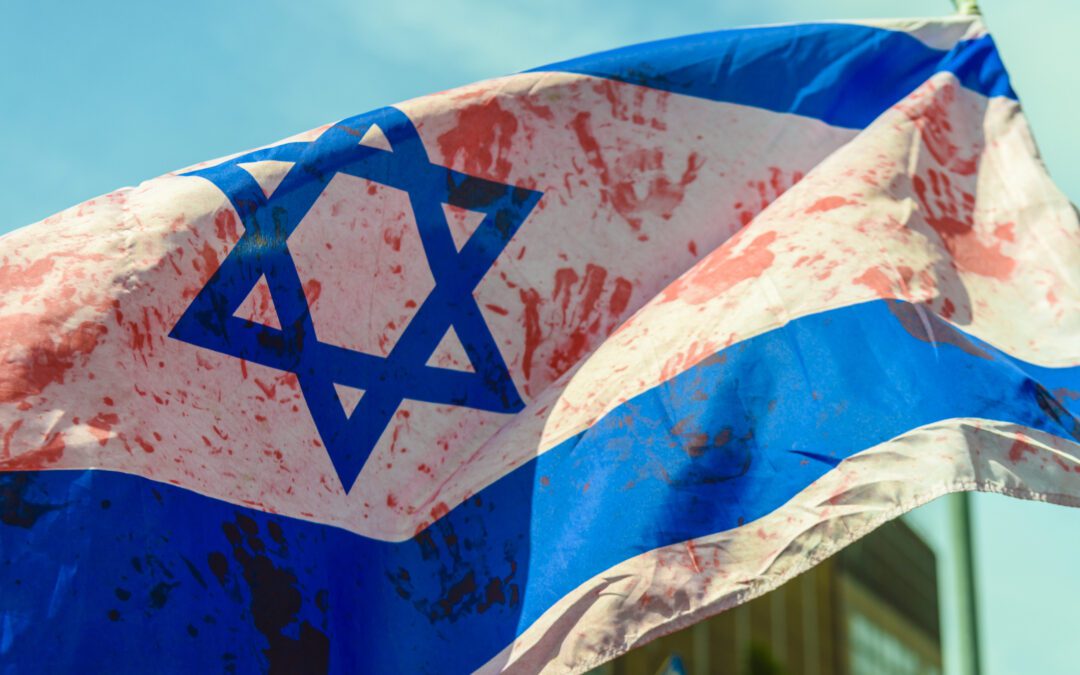[This is another installment on the Israel-Hamas conflict, this time examining Netanyahu’s political situation as it relates to the war in Gaza.]
These are challenging times for Bibi Netanyahu, to say the least. Having long branded himself as the Prime Minister best able to keep Israel safe, he now finds himself as the Israeli leader in charge on the worst day of violence against Jews since the Holocaust. Some 1,200 people in Israel were brutally murdered in a surprise attack, while Hamas carted off nearly 250 hostages to Gaza. The situation has left Israelis traumatized and in pain. His reputation in tatters and deeply unpopular, Netanyahu has been widely criticized for having failed to prevent the attack and for even having facilitated it by his ill-conceived plan to divide the Palestinians by propping up Hamas financially as a rival to Fatah and the Palestinian Authority in the West Bank.
Since October 7, Netanyahu has ordered the IDF into a brutal siege of Gaza that has left close to 30,000 Palestinians dead at the time of this writing. While Israelis may broadly approve of the war, the extent of the death and destruction in Gaza have left Netanyahu with fewer and fewer friends in capitals around the world. If things do not improve, he may find himself without sufficient allies to provide the political, diplomatic, and military support Israel needs to prosecute the war. Meanwhile, he must also contend with a vexing case against Israel before the ICJ under the Genocide Convention.
Netanyahu has consistently been a divisive force in Israel and is now the leader of the most right-wing government in Israeli history. His efforts to weaken the judiciary brought unprecedented numbers of protestors, including even reservists, out onto the streets. Likewise, his promotion of legislation declaring Israel to be “the nation-state of the Jewish people, and the Jewish people alone” has divided Israelis and left minorities feeling anxious and alienated from the country. While Israelis widely, albeit no doubt grudgingly, have accepted that Netanyahu should remain in office while the war continues, only 15% wish for him to remain there once hostilities have been concluded. On top of that, he is currently the subject of a corruption case, and staying in office long enough may be his only way of staving off conviction. Since new elections would undoubtedly bring victory to more centrist and perhaps even leftist parties, and would oust Netanyahu as Prime Minister, neither he nor his right-wing buddies in the Knesset are interested in exiting the coalition or bringing on new elections. Accordingly, the coalition, and Netanyahu in particular, do not have an interest in seeing the war end anytime soon, and certainly not before Netanyahu can declare total victory (regardless of whether the facts on the ground actually support such a declaration).
One of my earlier posts on the conflict with Hamas explained how the absence of a viable path to peace has helped build the ranks of Palestinian militants, including Hamas, and Netanyahu — a determined opponent of a Palestinian state under any circumstances — has played a central role in ensuring that that situation prevails. Meanwhile, Netanyahu’s personal and political interests increasingly diverge from those of the Israeli public, in particular the loved ones of those being held hostage by Hamas. Netanyahu has an enormous ego, and the events of October 7 dug into it deeply. His political future is precarious at best owing to the intelligence and security blunders that allowed Hamas to launch its shocking and barbaric attack, and he undoubtedly sees only complete victory over Hamas (as if that is even possible) as a necessity for reviving his wounded ego and political stature. And he needs a successful conclusion of the war to cushion him from the criticism that is likely to come as the investigations into why his government failed to detect and prevent the October 7 attacks issue their reports.
Meanwhile, although support for the war among Israelis remains high, as the siege drags on, Israelis may find themselves wishing to end the war sooner than Netanyahu will allow. It is also clearly the case that the hostages are a higher priority for the Israeli public than they are for Bibi, who places his own interests in declaring total victory over Hamas above their lives. And, except for Netanyahu’s most ardent supporters, who are greatly reduced in numbers since before October 7, most Israelis do not share Netanyahu’s concern over his legal problems. As these chasms become more pronounced, Netanyahu’s wishes and those of most Israelis may increasingly diverge, imposing stresses on Israeli society and the country’s polity.
Netanyahu is not required to call an election until late October 2026, and so, given the incentive for coalition members to stick together until then, he may have a lot of breathing room before he needs to face the voters. (I regret that I am not expert enough on the Israeli political system to know if there are any other alternatives for forcing an election before then other than an unlikely vote of no confidence.) However, if the gap between Netanyahu’s and the voters’ mindsets reaches a tipping point, perhaps Israelis will once again take to the streets – this time in even greater numbers than in the case of the judiciary reforms – and force a reckoning for Bibi. It would indeed be a shame, however, if Bibi’s narcissism and ego ended up shattering the remarkable unity among Israelis that has characterized the difficult months since October 7.
[Note: After the date of this writing, Sen. Chuck Schumer delivered a speech publicly denouncing Netanyahu as an obstacle to peace and calling for new elections in Israel. President Biden praised Schumer’s remarks, while Netanyahu and conservatives objected to Schumer’s speech as interference in the affairs of a fellow democratic state.]


